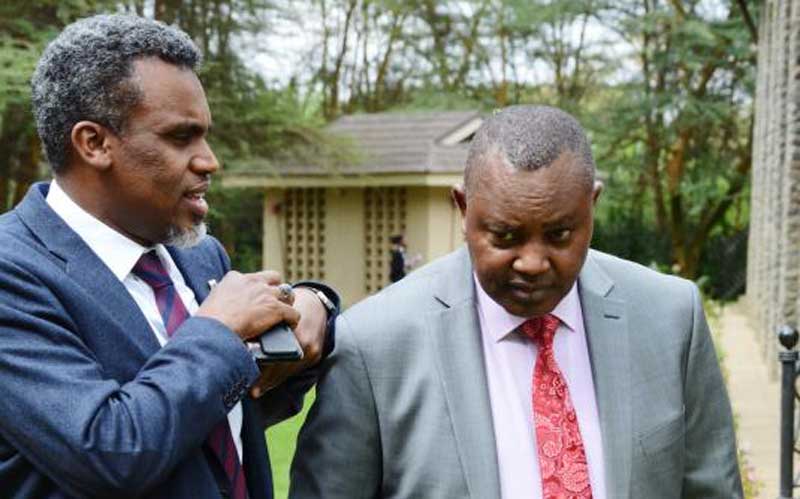×
The Standard e-Paper
Stay Informed, Even Offline

Director of Public Prosecutions Noordin Haji (left) with Director of Criminal Investigations George Kinoti. [File, Standard]
A fresh battle has erupted between the Office of the Director of Public Prosecutions (ODPP) and the Directorate of Criminal Investigations (DCI).